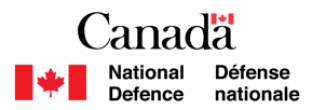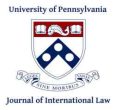The Conference
Historically, strategic restraint has been the dominant approach among space faring nations, all of whom understood that continued access to and use of space required holding back on any threats or activities which might jeopardize the status quo of peace in space. However, recently there has been a discernible shift in international rhetoric towards offensive defense in space. China, Russia and the U.S. have deployed various tests in space in recent years, leading to speculation that they all possess anti-satellite weapon (ASAT) capabilities. These tests suggest that there is a move towards weaponization of space, despite the core principle of the 1967 Outer Space Treaty that space shall be used exclusively for peaceful purposes. In response, a more active stance towards space defense has entered the policy rhetoric of India, Israel and Japan. In response to concerns about the capacities of other players to threaten critical space assets, the U.S. Space Command, U.S. Strategic Command, and the U.S. Air Force Headquarters have been undertaking an assessment to determine how the U.S. Government can gain dominance in the space domain, seeking to develop offensive space control and active defensive strategies and capabilities.
These factors, combined with a lack of transparency about actual capabilities and intentions on the part of all major players in space, creates a cyclical escalation which has led some commentators to describe this as a conceivable return to a Cold War-type arms race, and to the foreseeability of a space-based conflict. Due to many unique characteristics of the space domain, an armed conflict in space would be catastrophic for all players, including neutral States, commercial actors, and international civil society. Yet it is the most technologically advanced States who stand the most to lose from a space-based conflict, due to our high dependence on space, and among these the United States is at the highest risk. The questions then arise, how can the U.S. and its allies protect their space assets from being targeted, without contributing to further escalation of an arms race, to increased aggressive policy threats, or to the potential of a space-based conflict? How can we clarify the law on the use of force and the law of armed conflict applicable to space? And what would ethical space security policies require
There is a critical need for clear representations from States as to their position on national and international law applicable to space, and well-informed policy positions on the emerging weaponization of space. Due to the specificity of the space domain, specialized expertise must be provided to decision-makers, and interdisciplinary opinions must be sought from a multitude of stakeholders. To that end, CERL will host this high-level discussion, which will focus on questions of ethical conduct and standards, while assessing the ways in which the U.S. and other leaders in space can protect their space assets in accordance with the core tenets of the Outer Space Treaty regarding freedom of access to and use of space, and the prohibition on non-peaceful uses of outer space, as well as potential arms control measures, and the unique role that commercial actors play in securing space for sustainable civilian and military uses.
*CLE credits will be available.
This conference is by invitation only, however the keynote address on April 5th is open to the public and we welcome your attendance. Please RSVP here
Conference Report
Conference Keynote
The video of the Keynote Address can be found here: https://youtu.be/Gh_EgJ7YSRE
Follow CERL on youtube
Warfighting and Law in Outer Space – Keynote Address:
MAJOR GENERAL DAVID D. THOMPSON,
VICE COMMANDER OF AIR FORCE SPACE COMMAND
Mr. Stephen Oswald
Former nasa shuttle pilot
Dr. LAURA GREGO
Global security scientist, Union of concerned Scientists
Moderated by:
Dr. Cassandra SteeR
Acting executive director of CERL
Our 21st century lives are highly dependent on satellites and space-based technologies, and our military depends on these technologies heavily for its operations. This keynote event will address the ways in which the military uses outer space, the risk of weaponization of outer space, and issues faced by the U.S. in terms of protecting its assets while seeking to avoid a space conflict. The effects of a conflict in outer space would be difficult, if impossible to contain, and a different strategy is required than in other domains such as land, sea and air. What role can international diplomacy and information sharing play in protecting against an arms race in space? What can and should the U.S. be doing to protect against attacks on satellites? How does the law of armed conflict apply to outer space? And how would a space conflict affect us all in our daily lives?
This panel of high level experts will provide a unique insight into these issues, and into why we all need to be aware of the importance of space security.
Maj. Gen. David D. Thompson is the new Vice Commander of Air Force Space Command. He is responsible for organizing, training, equipping and maintaining space and cyberspace forces, and providing missile warning, communications and cyber capabilities for North American Aerospace Defense Command, U.S. Strategic Command and the other combatant commands.
Mr. Stephen Oswald is a former NASA Shuttle pilot, who has completed three missions in space. He later joined NASA Headquarters in Washington, DC as Deputy Associate Administrator for Space Operations, before retiring in 2000. He will share about his experience in outer space, and why space matters to us all.
Dr. Laura Grego is Senior Scientist in the Global Security Program of the Union of Concerned Scientists. She focuses on the technology and security implications of national missile defense and of space security. She is the author or co-author of roughly 30 peer-reviewed papers on a range of topics, including cosmology, space security, and missile defense.
This program has been approved for 1.5 ethics CLE credits for Pennsylvania lawyers. CLE credit may be available in other jurisdictions as well. Attendees seeking CLE credit should bring separate payment in the amount of $60.00 ($30.00 public interest/non-profit attorneys) cash or check made payable to The Trustees of the University of Pennsylvania.
Schedule
April 5, 2018
| 5:00 – 6:30 pm | Public Keynote Address – Penn Law – Michael Fitts Auditorium |
| 6:30 – 7:30 pm | Cocktail reception in the Haaga Lounge immediately following the keynote. All audience members invited to join in the celebration of the kick-off to this exciting conference. Register for the Keynote Address here. |
April 6, 2018
| 8:30 – 9:15 am | Registration and Continental Breakfast at the Singh Center, University of Pennsylvania – Glandt Auditorium |
| 9:15 – 9:30 am | Welcoming Remarks |
| 9:30 – 10:45 am | Session 1: Space Security, Space Law and Non-Binding Norms from Peace to ConflictModerator: Professor Claire Finkelstein |
| 10:45 – 11:15 am | Break (refreshments served) |
| 11:15 – 12:15 pm | Session 2: Strategic and Ethical Space SecurityModerator: Theresa Hitchens |
| 12:30 – 2:00 pm | Lunch – The Study Hotel |
| 2:00 – 3:15 pm | Session 3: Commercial Actors and Space SecurityModerator: Andrew D’Uva |
| 3:15 – 5:00 pm | Break – participants make their own way to – The Union League of Philadelphia for Session 4, Cocktails & Dinner |
| 5:00 – 6:15 pm | Session 4: Intelligence and Space-Based Technologies – The Union League of Philadeliphia – McMichael RoomModerator: Doug Loverro |
| 6:30 – 7:30 pm | Cocktails for conference participants only – The Union League of Philadelphia – Binney Room |
| 7:30 – 9:00 pm | Dinner for conference participants only – The Union League of Philadelphia – Grant West Room Dinner Keynote Speaker: General James Cartwright |
April 7th, 2018
| 8:30 – 9:30 am | Continental Breakfast |
| 9:30 – 10:45 am | Session 5: Use of Force Applied to Space: A Role Play |
| 10:45 – 11:15 am | Break (refreshments served) |
| 11:15 – 12:30 pm | Session 6: Law of Armed Conflict Applied to Space: A Role-Play |
| 12:30 – 1:30 pm | Lunch – Singh Center – Main Lobby |
| 1:30 – 2:45 pm | Session 7: Harnessing International CooperationModerator: Dr. Cassandra Steer |
| 2:45 – 3:15 pm | Closing session: Conclusions from Role-Play and wrap-up |
Participants
Sr. Associate Deputy Legal Counsel for Intelligence, US Department of Defense General Counsel
Senior Partner, Berger & Montague P.C.; CERL Executive Board
Columbia Law School; CERL Executive Board
University of Luxembourg
Office of Space & Advanced Technology, US Dept. of State
Cozen O’Connor; CERL Executive Board
Center for Strategic and International Studies
Senior Research Fellow, Institute for National Security Affairs, Korea National Defense University
Federal Systems Inc.; CERL Executive Board
Senior Manager, Space Systems Business Development, General Dynamics Mission Systems
Spectrum Space Security, Inc.
President, Providence Access
Lecturer, Homeland Security Program, School of Public Affairs, Penn State Harrisburg
Schnader Attorneys at Law; CERL Executive Board
CERL Founder & Director, University of Pennsylvania Law School
Lieutenant Commander Heather Fogo
Directorate of International Law, Office of the Judge Advocate General Canadian Armed Forces
Professor Joanne Irene Gabrynowicz
Editor-in-Chief Emerita, Journal of Space Law
Archer Law; CERL Executive Board
Ave Maria School of Law; CERL Executive Board
CEO and Co-Founder, Analytical Graphics Inc.
Union of Concerned Scientists and Technological Expert on MILAMOS
Executive Vice-President, National Public Radio; CERL Executive Board Chair
Eisenhower Center for Space Studies
Harvard Department of the History of Science
Director, Space Policy Institute, George Washington University
Senior Research Associate, Center for International Security Studies, University of Maryland
US Naval War College
Partner, FH+H Law Firm
Lieutenant Colonel Matthew T. King
Chief of Air and Space Law at the Headquarters Air Force Operations and International Law Directorate
Former Deputy Assistant Secretary, Office of the Defense for Space Policy
Chair, Department of Philosophy, Dalhousie University; CERL Executive Board member
Carleton University
Senior Fellow, The Simons Foundation
Harvard Kennedy School; CERL Executive Board
Professor & Chair of Philosophy, University of Maryland; CERL Executive Board
Major T. Adam Newsome
Chief, Space Law, Air Force Space Command Headquarters and Space Law Instructor, Space Education & Training Center
Sarah Pacey
Senior Policy Advisor, Directorate of Policy Development, Canadian Department of National Defence
Space Security Program Director, The Prague Security Studies Institute
University of Arizona; CERL Executive Board
Secure World Foundation
President, Analytical Graphics Inc.
Professor of International Relations, Department of Political Science, Carleton University
U.S. Air Force
CERL Interim Executive Director
Visiting Senior Fellow with The German Marshall Fund of the United States
Patricia VanDenBroeke
Attorney-Advisor, Space, Cyber and International Law Division, Office of the Staff Judge Advocate, Air Force Space Command
Vice President, Commercial Space Operations Center (ComSpOC), Analytical Graphics Inc.
Brigadier General (ret), U.S. Army; CERL Executive Board
Attorney at Law; CERL Executive Board
Background Readings
Session 1: Security, Law and Non-Binding Norms in Space: From Peace to Conflict
NEWS ARTICLES AND BLOGS:
- Chris Bowlby, “Could a War in Space Really Happen”, BBC News (19 December 2015), online: BBC News.
- Subrata Ghoshroy, “The X-37B: Backdoor weaponization of space?” (2015) 71: 3 Bulletin of the Atomic Scientists 19.
- Mike Gruss, “S. Official: China Turned to Debris-free ASAT Tests Following 2007 Outcry”, Space News, (11 January 2016).
- Michael Listner & Joan Johnson-Freese, “Object 2014-28E: Benign or Malgnant?”, Space News (8 December 2014).
- Paul Marks, “Satellite collision ‘more powerful than China’s ASAT test”, New Scientist (13 February 2009).
- Paul Meyer, “Star Crossed: An international code of conduct for outer space?”, Open Canada.org, 31 August 2015.
- Multilateral Negotiations on an International Code of Conduct for Outer Space Activities, Chair’s Summary, New York, 27-31 July 2015.
- Cassandra Steer, “Why international law matters in outer space: Part I”, IntLawGrrls blog post, May 18 2015.
- Space Security Index 2017.
SCHOLARLY PUBLICATIONS
- J. Blount, “Renovating Space: The Future of International Space Law”, Denver Journal of International Law and Policy, Vol 40:1-3, 515
- Mitchell Ford, “War on the Final Frontier: Can Twentieth-Century Space Law Combat Twenty-First Century Warfare?” Houston Journal of International Law 39:1 (2017) 237
- Michael Haas, “Vulnerable Frontier: Militarized Competition in Outer Space” in Thränert Oliver & Martin Zapfe, eds, Strategic Trends 2015: Key Developments in Global Affairs, (Center for Security Studies: 2015)
- Jonathan Havercroft and Raymond Duvall, “Critical Astropolitics: the geopolitics of space control and the transformation of state sovereignty”, in: Natalie Bormann and Michael Sheehan, Securing Outer Space, (Routledge, 2009), p 42 – 58.
- Paul Meyer, “The CD and PAROS: A Short History”, UNIDIR Resources, April 2011
- James Clay Moltz, Crowded Orbits, (Columbia University Press, 2014), chapter 5: Military Space, Expanded Uses and New Risks
- Cassandra Steer, “Overview of the Existing Mechanisms of Global Space Governance”, in: Ram Jakhu and Joe Pelton (ed.s), Global Space Governance: An International Study, (Springer, 2017) (36 pages)LEGAL SOURCES
- 1967 Treaty on Principles Governing the Activities of States in the Exploration and Use of Outer Space, including the Moon and Other Celestial Bodies
- UN General Assembly Resolution 61/75, 18 December 2006, “Transparency and confidence-building measures in outer space activities”
- UN General Assembly Resolution 70/53, 7 December 2015, “Transparency and confidence-building measures in outer space activities”
- UN General Assembly Resolution 70/82, 15 December 2015, “International Cooperation in the peaceful uses of outer space”.
- 2014 Draft International Code of Conduct for Outer Space Activities
Session 2: Strategic Space and Ethical Space Security
- Michel Bourbonniere, “National-Security Law in Outer Space: The Interface of Exploration and Security” (2005) 70 Journal of Air Law Commerce 3
- Bin Cheng, “Definitional Issues in Space Law: the ‘Peaceful Use’ of Outer Space, including the Moon and other Celestial Bodies” (1983) 11 J Space Law 89
- Joan Johnson Freese and Theresa Hitchens, Toward a New National Security Space Strategy: Time for a Strategic Rebalancing, Atlantic Council Strategy Paper No. 5.
- Laura Grego et al. “Securing the Skies” (2010): Ten Steps the United States should take to improve the security and sustainability of space.
- Col Bernard J. Gruber, Col Jon M. Anderson, (Retired), “Space Superiority, Down to the Nanosecond: Why the Global Positioning System Remains Essential to Modern Warfare”, Air and Space Power Journal, September-October 2013, 98
- Zulfqar Khan and Ahmad Khan, “Chinese Capabilities as a Global Space Power”, Astropolitics 13 (2015) 185
- General Lance Lord, “Space Superiority” (2015) 1(3) High Frontier 4
- Ambassador Gregory L. Schulte and Audrey M. Schaffer, “Enhancing Security By Promoting Responsible Behavior in Space”, Strategic Studies Quarterly, Spring 2012, 9-17
- Cassandra Steer, “Global Commons, Cosmic Commons; Implications of Military and Security Uses of Outer Space”, Georgetown Journal of International Affairs, 16.3, Spring 2017
Session 3: Commercial Actors and Space Security
- Yousaf Butt, “Avoiding Collisions in Outer Space”, New York Times, 19 March 2018.
- Sean D. Carberry, “Acquisition reform prioritized in 2018 NDAA”, FCW, 26 June 2017.
- Joan Johnson-Freese, Space Warfare in the 21st Century, (Routledge, 2017) ch 6: “Space Development and Governance”
- Jeff Foust, “House Committee Passes Commercial Space Regulatory Bill”, Space News, 9 June 2017.
- William Hardwood, “SpaceX launches secret Air Force spaceplane”, CBS News, 7 September 2017,
- Henry R. Hertzfeld, “Globalization, Commercial Space and Spacepower in the USA”, Space Policy 23:4 (2007) 210
- Michael Hoversten, “U.S. National Security and Government Regulation of Commercial Remote Sensing from Outer Space”, 50 Air Force Law Review 253 (2001)
- Moorman, Jr. “The Explosion of Commercial Space And The Implications For National Security”, 36th AIAA Aerospace Sciences Meeting and Exhibit, Aerospace Sciences Meetings.
- Joe Pelton, “Satellite Security and Performance in an Era of Dual Use”, Online Journal of Space Communication, Issue 6.
- Phillip Swarts, “Bridenstine calls on appropriators to fund milspace programs, FAA space office”, Space News, 9 March 2017.
LEGAL SOURCES
Session 4: Intelligence and Space-Based Technologies
- Philip Swarts, “Buck calls for more space intelligence positions”, Spacenews, 14 April 2017, (634 words).
- Mike Gruss, “DoD, Intelligence Agencies Investing $16M in JICSpOC”, Spacenews, 11 September 2017.
- Australian Department of Defence, “Whitepaper on Intelligence, surveillance and reconnaissance (ISR), electronic warfare, space, and cyber security”, 2016.
Session 5: Use of Force applied to Space
- Laura Grego et. al “The Physics of Space Security” (2005).
- Laura Grego et. al “The Anti-Satellite Capability of the Phased Adaptive Approach Missile Defense System” (2011).
- Laura Grego, Executive Summary, Space Security Index 2017.
- Ricky Lee, “The Jus ad Bellum in Outer Space: The Interrelation Between Article 103 of the Charter of the United Nations and Article IV of the Outer Space Treaty”, International Institute of Space Law Proceedings, 2002, IAC-02-IISL.3.02
- Jackson N Maogoto & Steven Freeland, “Space Weaponization and the United Nations Charter Regime on Force”, The International Lawyer 41:4 (WINTER 2007) 1091
- Major Robert A. Ramey, “Armed Conflict on the Final Frontier: The Law of War in Space” (2000) 48 The Air Force Law Review 1
- Latoya Tate, “The Status of the Outer Space Treaty at International Law during War and Those Measures Short of War”, 32 Journal of Space Law (2006) 177
Session 6: Law of Armed Conflict Applied to Space
- William H. Boothby, The Law of Targeting, (Oxford University Press, 2012), Chapter 17: Targeting and Outer Space
- William H. Boothby, “Space Weapons and the Law”, 93 International Law Studies (2017) 179
- Kubo Mačák, “Silent War: Applicability of the Jus in Bello to Military Space Operations” 94 International Law Studies 1 (2018)
- Dale Stephens and Cassandra Steer, “Conflicts in Space: International Humanitarian Law and its Application to Space Warfare”, McGill Annals of Air and Space Law, Vol XXXX, (2016)
- Michael Schmitt, “International Law and Military Operations in Space”,10 Max Planck Yearbook of United Nations Law (2006) 89
Session 7: Harnessing International Co-operation
- Michael C. Mineiro, “The United States and The Legality of Outer Space Weaponization: A Proposal for Greater Transparency and a Dispute Resolution Mechanism”, McGill Annals of Air and Space Law, Vol XXXIII (2008) 441
- Cassandra Steer, “Is There a Risk of Condoning Space Warfare by Regulating it?”, International Journal (forthcoming, Winter 2018)
- Joan Johnson-Freese, Space as a Strategic Asset, (Columbia University Press, 2007) ch 9: “Avoiding a Clash of Ambitions; Towards a Comprehensive U.S. Space Strategy”
- Joan Johnson-Freese, Space Warfare in the 21st Century, (Routledge, 2017) ch 7: “Space at the Tipping Point”
- Elinor C. Sloan, Modern Military Strategy, 2nd Edition (Routledge, 2017) ch 9: “Space Power”
- A. Broniatowski, G. Ryan Faith, and Vincent G. Sabathier, “The Case for Managed International Cooperation in Space Exploration”, Center for Strategic and International Studies (2006)
- Dean Cheng, “Prospects for US-China Space Cooperation”, The Heritage Foundation, 9 April 2014.
- Steven Freeland, “The US-Russian Space Station mission is a study in cooperation”, The Conversation, 1 May 2015.
- Everett C. Dolman, Astropolitik: Classical Geopolitics in the Space Age, (Frank Cass, 2002), Chapter 6: “Astrostrategy: Power, policy and Applications”, p 145-156
- James Clay Moltz, Crowded Orbits, (Columbia University Press, 2014), chapter 6: Space diplomacy
Required Readings
SESSION 1: SECURITY, LAW AND NON-BINDING NORMS IN SPACE: FROM PEACE TO CONFLICT
- “1967 Treaty on Principles Governing the Activities of States in the Exploration and Use of Outer Space”, United Nations Office of Outer Space Affairs
- Blount, P.J., “Peaceful Purpose for the Benefit of All Mankind: The Ethical Foundations of Space Security” (9 pages)
- Hitchens, Theresa, “The Role of Norms and Transparency and Confidence-Building in Space Governance” (abstract)
- Cassandra Steer, “Overview of the Existing Mechanisms of Global Space Governance”, in: Ram Jakhu and Joe Pelton (ed.s), Global Space Governance: An International Study, (Springer, 2017) (36 pages)
SESSION 2: STRATEGIC SPACE AND ETHICAL SPACE SECURITY
- Grego, Laura, “Space and Crisis Stability”, Union for Concerned Scientists (14 pages)
- Johnson-Freese, Joan and Kenneth Smith, “U.S. Space Dominance: An Ethics Lens” (30 pages)
- Garrett Harding, “The Tragedy of the Commons” Science 162 (1968) 1243-1248
- Smith, Mary Campbell, “Translator’s Introduction to Immanuel Kant’s “Perpetual Peace”
SESSION 3: COMMERCIAL ACTORS AND SPACE SECURITY
- “State of the Satellite Industry Report”, Satellite Industry Association, June 2017.
- Govern, Kevin, “Securing Space By Contract: Ethical and Legal Governance for Privatized Outer Space Security.”
SESSION 4: INTELLIGENCE AND SPACE-BASED TECHNOLOGIES
- Hendrix, Jerry and Adam Routh, “A Space Policy for the Trump Administration”, Center for a New American Security, Oct 2017. (19 pages)
- Swarts,Philip, “Buck calls for more space intelligence positions”, Spacenews, 14 April 2017, http://spacenews.com/buck-calls-for-more-space-intelligence-positions/ (634 words)
SESSION 5: USE OF FORCE APPLIED TO SPACE
- Fukushima, Yasuhito, “Debates over the Military Value of Outer Space in the Past, Present and the Future: Drawing on Space Power Theory in the U.S.”
- Jackson N Maogoto & Steven Freeland, “Space Weaponization and the United Nations Charter Regime on Force”, The International Lawyer 41:4 (WINTER 2007) 1091, pp 1098-1119 (21 pages – the full article is 30 pages)
SESSION 6: LAW OF ARMED CONFLICT APPLIED TO SPACE
- Dale Stephens and Cassandra Steer, “Conflicts in Space: International Humanitarian Law and its Application to Space Warfare”, McGill Annals of Air and Space Law, Vol XL, (2015)
SESSION 7: HARNESSING INTERNATIONAL CO-OPERATION
- Doucet, Gilles, “A Proposed TCBM to Increase Security and Stability in Outer Space” (10 pages)
- Kealotswe, Icho, “The Rule of Law in Outer Space- A Call for International Cooperation,” Mar 2018. (18 pages)
- MacIntosh, Duncan. “The Convergence of National Rational Self-Interest and Justice in Space Policy; Extending the Contractarian Reduction of Morality to Rationality Into The Final Frontier”. (abstract)
- Meyer, Paul, “Diplomacy: The Missing Ingredient in Space Security”. (abstract)
Contact us
For any questions regarding the conference or registration, please contact: Jennifer Cohen at [email protected]






